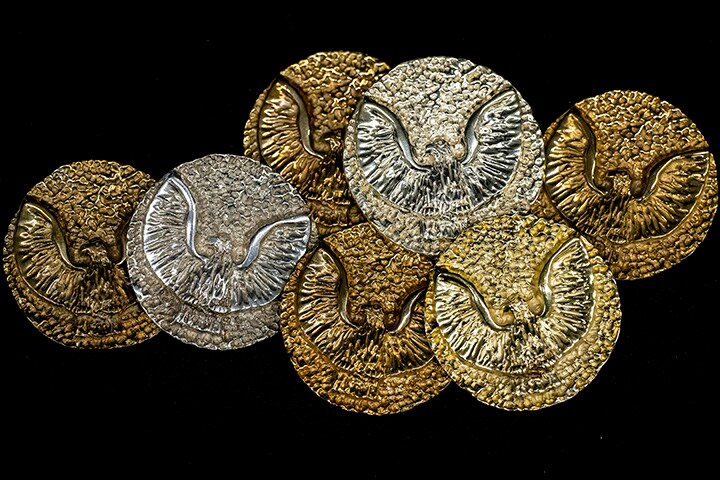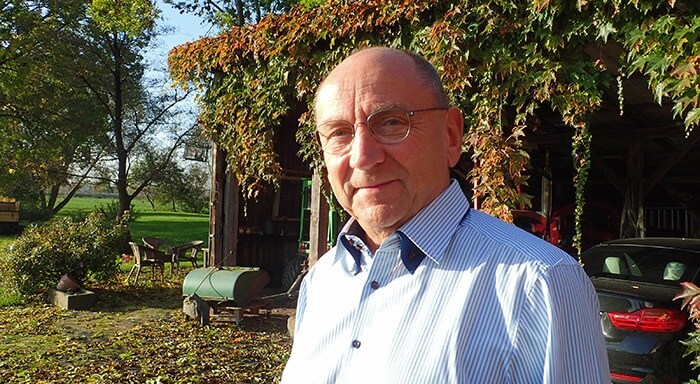Blog
Share on social media
Winners Invention Awards are the heroes of Philips Research
For athletes, winning a medal at the Olympic Games is the ultimate reward. In Research & Development (R&D), this reward is the granting of a series of patents that jointly protect an innovation that has been successfully marketed. After all, it means that you have developed new techniques and applications of which the intellectual property has been registered and which are therefore ready to be marketed. And it's even better when that innovation subsequently addresses a major societal issue. For Philips, this is healthcare, with the aim of improving clinical outcomes, keeping costs under control, and improving the experience for healthcare staff, and, of course, the quality of life for the patient or the (still) healthy consumer.
Milestones
That's why Philips created the Invention Awards, to honor the researchers who have reached important milestones by obtaining 10, 25, 50 or 100 patents. Patents have always played an important role within Philips. Not as an end, but as a means to enable innovation and to make the step from development to market.

Annually, Philips invests 10 percent of its turnover (i.e. 1.9 billion euros) in R&D. More than 700 million is invested in the Brainport Eindhoven region. In the top 25 companies with the most patent applications in Europe in 2019, Philips is the only Dutch company, ranked number 8. "Over the past year, we have applied for 1,617 new patents, the majority of which are focused on medical technology," says Chief of Staff Eva Wisse, who organizes the Invention Awards. "That shows the innovative power of Philips as a health technology company."
Recognition for hard work
"For our researchers, the Invention Awards are a great moment to get recognition for their hard work," says Eva. "During a personal presentation, we will reflect on their achievements, and the family of the prize-winner are also welcome." According to Henk van Houten, Chief Technology Officer and Head of Research at Philips, the importance of a strong patent portfolio for an innovative company like Philips can hardly be underestimated: "I actually see our award winners as serial entrepreneurs who keep reinventing themselves. You can only put a lot of patents to your name if you can combine a high degree of creativity with technical knowledge and years of experience in the field of health technology. I see them as the heroes of our research organization."
You can only put a lot of patents to your name if you can combine a high degree of creativity with technical knowledge and years of experience in the field of health technology. I see them as the heroes of our research organization.
Henk van Houten
CTO and Head of Research
Mathematical algorithm for faster CT images
In 2020 one diamond Invention Award was presented; Roland Proksa, Research Fellow at Philips Research in Hamburg, achieved the milestone of one hundred patents this year. He is proud of this achievement, but modest at the same time: "The award tells me that my scientific contributions have a solid foundation in the ‘real world’ and are not just scientific results without any practical value. I love to improve things around me, so it feels good to know that they impact people’s lives positively."
I love to improve things around me, so it feels good to know that they impact people’s lives positively.
Roland Proksa
Research Fellow
One of his early patents was for CT imaging where he invented a more targeted scanning method to prevent patients from being exposed to too much radiation where it is not necessary. Another CT invention he is very proud of was the development of a math algorithm and computer chip that significantly increased the speed at which CT images could be reconstructed.

This means that doctors could more quickly analyze their patient’s images and diagnose a problem. “If I look into the eyes of young children or their parents sitting in an oncology therapy center, I feel really bad sometimes. I’m glad to have the chance to help these people a bit through my daily work, for example by improving the diagnostics.”
If I look into the eyes of young children or their parents sitting in an oncology therapy center, I feel really bad sometimes. I’m glad to have the chance to help these people a bit through my daily work, for example by improving the diagnostics.
Roland Proksa
Research Fellow
Impactful Inventors
Who are the winners of these Invention Awards, what are their motivations and how do they explain their success? In the new interview series Impactful Inventors we will look for the answers to these questions.
